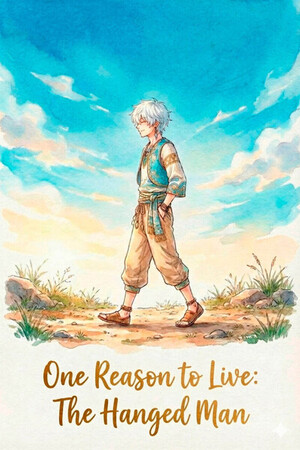The knock on the door was faint, almost as if the person on the other side hesitated. Janice barely stirred from the cocoon of blankets she had wrapped herself in. Depression had stolen her energy and her will to engage with the world. The knock came again, louder this time.
“Janice,” her mother’s voice cracked, “she’s gone. Your grandma... she’s gone.”
Janice’s chest tightened. She knew this day would come, yet the reality hit harder than she’d anticipated. She wanted to rush out, to hold her mother, to be there for the family. But she couldn’t move. She stayed in her bed, staring at the ceiling as guilt gnawed at her.
Hours later, she dragged herself to the funeral, arriving just in time to see the coffin lowered into the ground. Her mother stood at the edge of the grave, her shoulders trembling, but when she glanced back at Janice, her expression was blank, almost accusatory.
“You weren’t there,” her mother whispered.
“I-I couldn’t…” Janice’s voice faltered. She couldn’t find the words to explain the weight pressing her down, the darkness that had consumed her.
That night, Janice sat in her grandmother’s empty room, the smell of lavender still lingering in the air. She opened the drawer where her grandmother kept a bundle of letters and found one addressed to her.
“My dearest Janice,I know you’re struggling, my sweet girl. I’ve always known. But you’re stronger than you think. Life isn’t meant to be perfect, nor are we meant to walk it alone. Promise me you’ll fight for your joy. Promise me you’ll keep going.”
Janice clutched the letter to her chest and wept for hours.
In the weeks that followed, Janice sought solace in the church her grandmother had frequented. It wasn’t an easy journey. Sitting among strangers, she often felt out of place. But slowly, something began to shift.
One day, a kind-faced priest approached her after a sermon. “You seem lost,” he said gently.
“I don’t know if I believe in anything anymore,” Janice confessed, tears brimming in her eyes.
“You don’t have to believe in everything,” he replied. “Just start by believing in yourself.”
Those words stayed with her, nudging her to take small steps forward. She began to leave the house more often, visiting the park her grandmother had loved and even volunteering at the local shelter. For the first time in years, she felt the faint stirrings of hope.
Then came the diagnosis.
The doctor’s words were clinical, detached: “You have an aggressive form of cancer. I’m afraid it’s terminal. Three months at most.”
Janice stared at him, waiting for him to laugh and tell her it was a mistake. But the room remained silent except for the faint hum of the fluorescent lights.
When she finally spoke, her voice was raw. “Three months? I spent years wanting to die, and now that I’ve finally started to live, you’re telling me I’m out of time?”
“I’m sorry, Janice.”
The words echoed in her head as she stumbled home. She locked herself in her room, replaying her life in fragmented memories. The missed opportunities. The relationships she let fall apart. The laughter she hadn’t shared in years.
Her mother’s voice broke through the door one evening. “Janice, please. Talk to me.”
“Why now?” Janice snapped. “Why does everyone only care when you’re dying? Where were you when I was drowning in my own mind?”
Silence hung between them like a chasm.
3 days later, Janice emerged. Her mother was in the kitchen, her hands trembling as she peeled an orange. She looked up, startled, and her lips parted as if to speak, but no words came.
“I’m sorry,” Janice whispered. Her mother’s face crumpled, and they embraced for the first time in years.
That morning, as Janice sat on the porch, watching the sunrise, she made a silent vow: if her time was limited, she would make it matter.
The days following Janice’s decision to rejoin the world were fragile, like stepping onto a frozen lake unsure if the ice would hold. Her mother tried to mask her relief by acting casual, but Janice noticed the way her voice softened, the way her hands lingered on Janice’s shoulder as if afraid she’d retreat back into herself.
7 days after the diagnosis, Janice ventured outside for the first time. The sunlight felt strange on her skin, warm yet unfamiliar, like greeting an old friend after years of estrangement. She walked aimlessly, her legs shaky from weeks of inactivity, until she found herself in the park where she and her grandmother used to feed the ducks.
She sat on a weathered bench, watching the ducks paddle in lazy circles. An elderly woman with a cane shuffled by and paused to sit beside her.
“Lovely day, isn’t it?” the woman said, her voice raspy but kind.
Janice nodded, unsure how to respond.
“You look like you’ve got a lot on your mind,” the woman continued, her gaze sharp despite her age.
Janice hesitated, then said, “I’ve got three months left to live.” The words felt foreign, as though they belonged to someone else.
The woman didn’t flinch. Instead, she placed a bony hand over Janice’s. “Three months is a gift, dear. Some don’t even get three seconds to say goodbye.”
Janice’s throat tightened. “It doesn’t feel like a gift. It feels like a punishment.”
The woman smiled faintly. “Life isn’t fair. But it’s still life. What you do with what’s left is up to you.”
Janice left the park that day with a strange sense of clarity. Her life was finite, yes, but the old woman’s words stuck with her.
One day Janice cousin Clara, showed up unannounced. Clara was bright and bubbly, the kind of person who seemed to radiate energy wherever she went.
“I’m taking you jogging,” Clara declared, shoving a pair of running shoes into Janice’s hands.
Janice blinked at her. “Jogging? I haven’t run since high school in PE class.”
“All the more reason to start now. Come on, it’ll be fun.”
Reluctantly, Janice agreed. As they jogged through the neighborhood, Clara chatted incessantly, filling the silence with stories about work, friends, and the ridiculous antics of her new puppy. Janice barely responded, too preoccupied with the weight of Clara’s sudden enthusiasm.
When they stopped for water, Janice finally blurted, “Why are you doing this?”
Clara looked at her, puzzled. “Doing what?”
“Acting like you care. No one cared when I was falling apart before. Why now? Because I’m dying? Because you feel guilty?”
Clara’s face fell. “That’s not fair, Janice.”
“Isn’t it?” Janice snapped, her voice rising. “Where were you when I was drowning in depression? When I couldn’t get out of bed for weeks? Now everyone wants to be my best friend because I’m dying. It makes me sick.”
Clara opened her mouth to respond but thought better of it. She handed Janice her water bottle and walked away, leaving Janice to finish the jog alone.
That night, guilt gnawed at Janice again. She hated how easily anger overtook her, how quickly she pushed people away. But it was hard to let people in when their sudden kindness felt like pity.
Janice found herself at her grandmother’s grave. She knelt by the headstone, brushing away stray leaves.
“Hi, Grandma,” she said softly, her voice trembling. “I made you a promise to visit you every month. I’m sorry, but... I don’t think I can keep that promise for much longer.”
Tears streamed down her face as she traced the engraved letters of her grandmother’s name. “I’m trying to be better, Grandma. I really am. But it’s so hard. I miss you. I wish you were here.”
The wind rustled the nearby trees, and for a brief moment, Janice felt a sense of peace, as if her grandmother were there, urging her forward.
As she left the cemetery, she resolved to make a list a list of everything she wanted to do before time ran out. She wasn’t sure what the future held, but she knew one thing, she couldn’t waste what little time she had left.
The bucket list began that same night. Janice sat on her bed, a notebook in her lap, the words “My To-Do List” scrawled across the top in shaky handwriting. She stared at the blank page, her mind racing.
"What do I even want?"
The answer was surprising in its simplicity. She didn’t want grand adventures or lavish trips. She wanted to feel alive in the little ways she’d missed all these years.
1. Learn to ride a bike.
2. Eat a shawarma.
3. Fall in love.
4. Travel on foot and see the world from the ground.
5. Reconcile with my parents.
The last one felt like the heaviest burden, but Janice underlined it twice.
The next morning, her mother caught her scribbling in the notebook at the breakfast table. “What’s that?”
“Nothing,” Janice said quickly, shutting it.
Her mother frowned but didn’t push. Instead, she slid a plate of eggs and toast toward Janice, watching her with a careful kind of quiet. Janice ate slowly, the sound of the fork scraping the plate the only noise between them.
A day later, Janice’s cousin Clara returned, knocking at her door with an apologetic look. “I brought you something,” Clara said, holding up a small paper bag.
“What is it?”
“Shawarma,” Clara said with a small smile.
Janice froze, staring at the bag. She hadn’t told anyone about her list, but here was one of her wishes, wrapped neatly in a piece of parchment paper.
Clara noticed her hesitation and added, “I figured you’d like to try something new. No pressure, though.”
Janice reached out, took the bag, and unwrapped the shawarma. The aroma of spiced meat and garlic sauce filled the air. She took a cautious bite and immediately melted into a sigh.
“This… this is amazing,” Janice said, tears pricking her eyes. “Why didn’t I try this before?”




Please sign in to leave a comment.